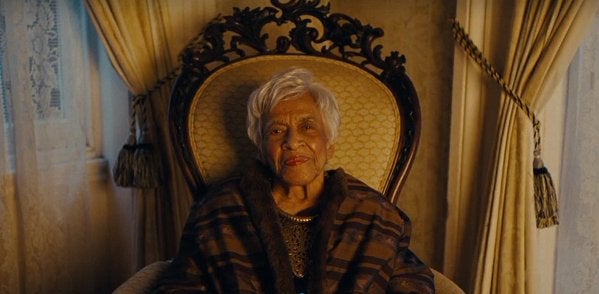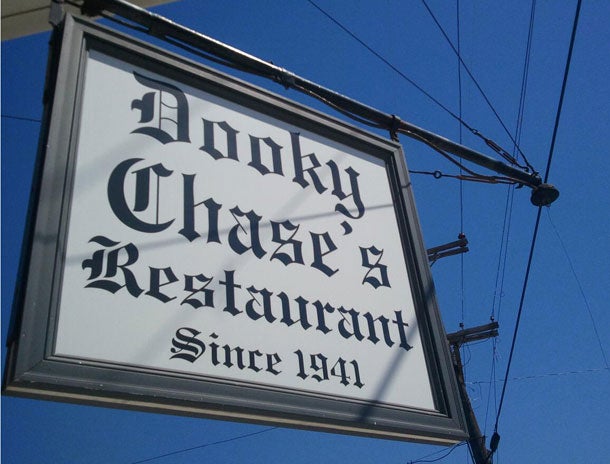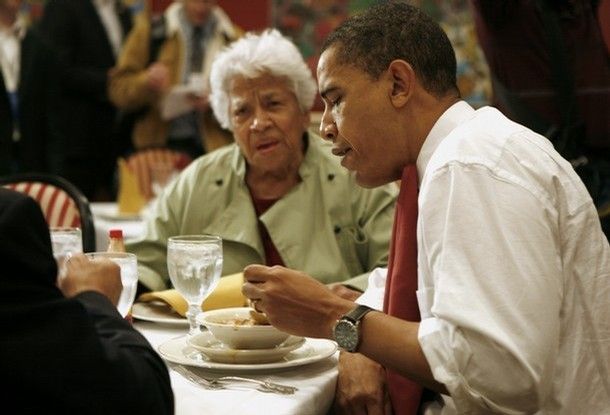The world knew Leah Chase from Beyonce´’s iconic “Lemonade” video and the majestic cameo shots of Beyonce´ softly brushing her hair evoking the beauty of black womanhood.
Children knew a version of her story from the character Tiana portrayed in Disney’s Princess and the Frog.
Chefs and historians knew her as the chef and co-proprietor of Dooky Chase Restaurant, the most important restaurant in the country.

Civil Rights activists, HBCU presidents, and Essence knew that her and her husband Edgar ‘Dooky’ Chase Jr., since 1941, created the safest space to meet and dine for Black folks in the South.
New Orleans knew her as their queen; ‘tell it like it is’ elder; gatekeeper of New Orleans Creole cuisine and culture; ambassador; Oracle; leader; friend and an incredible cook. Her family knew her as their beloved mother and grandmother.
And I’ve known her since I was a teenager.

In the early 1990s, My god sister and I walked into Dooky Chase Restaurant with tight fitted clothing and a teenage attitude. I, like many young people, had never seen a restaurant so beautiful. Bright red painted walls with mounted works of African-American art, freshly pressed white linen tables with delicate fine china set with precision and the alluring smell of Creole gumbo passed down from previous generations located directly across the street from the projects. My attitude quickly dissipated as I felt as if I was at my grandmother’s house. I wanted to go back to my god sister’s Xavier University dorm to change my faddish attire. Mrs. Leah saw us from across the room and came over to us as we awkwardly stood at the front of the house waiting to be seated. She looked at me and said, “Next time you will come wearing a dress.” I humbly lowered my head and took my chastisement as we were led to our table.
More than a decade later, now a culinary historian and professional, I walked into Dooky Chase Restaurant wearing a dress. When she saw me again she said with her infectious smile, “You look good wearing a dress. It’s about time.” That is how I remember her, always seeing the best in us even when we didn’t see it in ourselves.
So many who knew Mrs. Leah Chase have stories that will make you laugh, cry and smile. Vance Vaucresson, third generation New Orleans 7th Ward Creole sausage maker and purveyor of chaurice Creole hot sausage, a cherished ingredient for her famous gumbo that she bought from his family for 75 years said, “She believed in hard work, she was never going to retire, she was always on the battlefield. She would say, ‘Lord let me cook, I love to put out good food and watch people eat it.’ The magic of that dining experience of watching and interacting with patrons, when you see generations eating at your establishment was powerful to watch.”
But let me tell you who she was for those who don’t know and why we need to make sure that her legacy is never erased or lost in translation. Leah Chase was born in 1923 in Madisonville, Louisiana to God-fearing Creole of Color Catholic parents that taught her the power of prayer and hard work. As a teenager, she moved to New Orleans with big dreams and her parents’ blessings. By her early 20s, she married Edgar ‘Dooky’ Chase Jr. and worked at her in-laws’ sandwich shop located in the historic New Orleans Treme neighborhood.
Leah Chase didn’t see just a sandwich shop, she saw an opportunity and was able to convince her in-laws and younger husband that Black people deserved to have a fine dining restaurant in their own neighborhood in spite of Jim Crow. Leah Chase said prior to her death, “African-Americans had businesses but we didn’t know much about how to run a business. We were never taught. We just did it.”
Leah Chase wasn’t educated in a French culinary school or at one of the New Orleans HBCU’s, but her faith, strong work ethic, and vision gifted her the opportunity to serve some of the most prominent Civil Rights activists and presidents such as Martin Luther King Jr. and President Barack Obama. Her spirit was intoxicating, she was a master connector and organizer.

The restaurant culture she built with her husband, children and grandchildren solidified her place in American history as one of the most dynamic change agents in our time. Although she was our queen, she was still human. In 1990, her daughter Emily died giving birth. During Hurricane Katrina, Dooky Chase Restaurant was almost destroyed. In her 80s, she lived in a FEMA trailer with her husband until the restaurant reopened two years later. Mrs. Leah always wiped her tears in silence, never missed a day of work, rubbed her aching legs and orchestrated Dooky Chase Restaurant like a 19th century Edmund Dede symphony.
That was Mrs. Leah Chase. She lived by her daddy’s motto, “Pray, work and do for others.” In a 2018 interview we did together, she prophetically said, “I would like them to say that I tried my best to help other people and to make a difference. I think (about) this all the time. Everybody can’t be a leader, but you can be a good follower. Maybe you can’t lead, but you can help a leader get up. That will uplift you, too. To me, that’s important. People. That’s the most important thing.”
Leah Chase, the culinary and Civil Rights legend died on June 1, 2019. As her death impacts the hearts and minds of many across the globe, we must not allow her story to end with her death. She left the blueprint for us to follow and study. “I did what I knew and what I liked to eat and what my people liked to eat. You learn as you go.” As New Orleans buries its’ queen, a traditional African-American song comes to mind:
Some bright morning when this life is over
I’ll fly away
To that home on God’s celestial shore
I’ll fly away
I’ll fly away, oh glory
I’ll fly away in the morning
When I die, Hallelujah by and by
I’ll fly away…
Zella Palmer is an educator, culinary historian, author, filmmaker, Chair, and Director of the Dillard University Ray Charles Program in African-American Material Culture.
